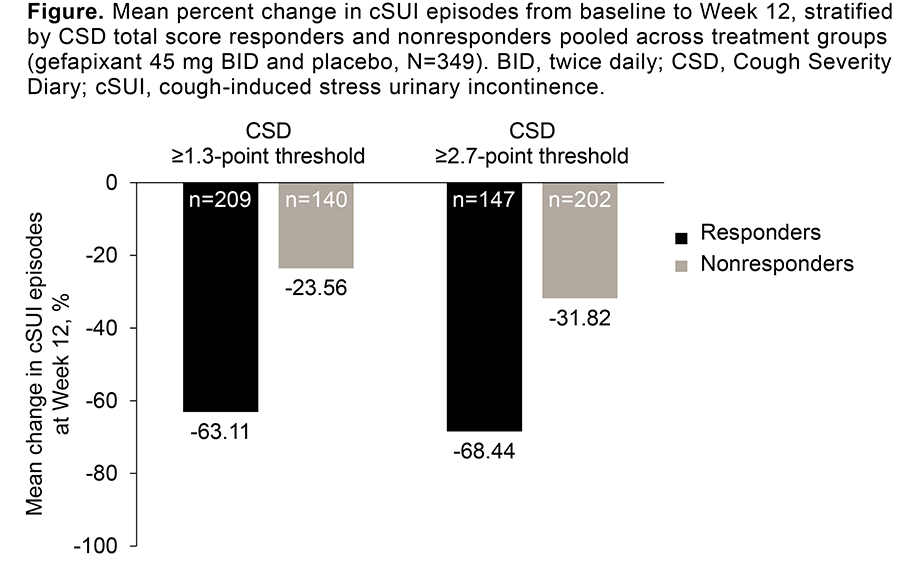Abstract
Background: In a phase 3b trial (NCT04193176), women with refractory or unexplained chronic cough (RCC/UCC) and cough-induced stress urinary incontinence (cSUI) had significantly reduced mean daily cSUI episodes after 12 wk of treatment with gefapixant 45 mg BID vs placebo (pbo). Association of changes in cough severity and cSUI has not been investigated.
Aims and objectives: To explore association of changes in self-reported cough severity (via Cough Severity Diary [CSD]) and cSUI in a phase 3b study.
Methods: Women with RCC/UCC (?12 mo) and cSUI (?2 cSUI episodes/d; SUI symptoms ?3 mo) received gefapixant or pbo. Pearson correlations between percent change in cSUI episodes (primary endpoint) and changes in CSD total and domain scores were analyzed at Wk 12. Mean percent changes in cSUI episodes were compared for CSD responders vs nonresponders at Wk 12 using established thresholds (?1.3- and ?2.7-point changes in total score).
Results: Of 375 participants (gefapixant, n=185; pbo, n=190), percent change in cSUI episodes significantly correlated with changes in CSD total (r=0.54) and domain scores (frequency, r=0.54; disruption, r=0.49; intensity, r=0.54); all P<0.0001. Greater reductions in cSUI episodes were observed for CSD responders at both CSD thresholds (Figure).
Conclusions: Improved self-reported cough severity was moderately but significantly associated with improved cSUI.
